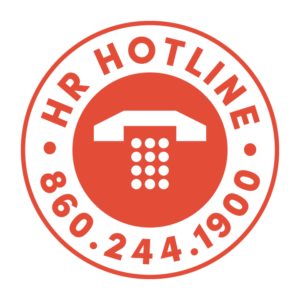HR Hotline: Can We Fire an Employee for Posting Charlie Kirk Comments?

Q: One of our employees published a detailed social media post revealing their personal views on Charlie Kirk and his assassination. Many of our employees, as well as the company’s owners, were deeply offended by the comments.
We’re concerned that other employees will refuse to work with them, or that members of the public will confuse those views with ours. May we terminate employment based on the comments?

A: Maybe. But that’s a very long, very big “maybe.” And a risky one at that.
The constitutional right to free speech is something we’re all familiar with, but which is often misunderstood.
Generally, the First Amendment of the U.S. Constitution protects our free speech rights against government action and retaliation, but not action by private employers.
That is, unless you live in Connecticut.
Connecticut law specifically extends constitutional free speech rights to those who work for private employers.
In other words, a private employer may not terminate or discipline an employee based on the content of that employee’s speech, even if the employer finds the speech to be abhorrent and contrary to its own values.
Exceptions
As with most things, however, there are exceptions. The key here is the employer’s ability to establish the exceptions with specific evidence.
Connecticut law provides that an employer may discipline an employee for speech if it “substantially or materially interferes with the employee’s bona fide job performance or the working relationship between the employee and the employer.”
But before you claim victory here, note that the employer’s burden of proof is substantial.
In a recent Connecticut case, an employer asserted that it terminated an employee because: (1) co-workers complained about the offensive nature of online comments; (2) the comments violated company policies against discrimination; (3) the company was concerned about working relationships going forward; and (4) it was worried about public perception.
“Are we firing this person because we vehemently disagree with their views and find them morally reprehensible?”
But the evidence in support of these claims was scant. No employee actually said they’d refuse to work with the employee, and no one asked that they be fired.
Nothing in the online post tied the employee to the company name. Ultimately, it appeared that they may have been fired simply because the comments were offensive.
And that is exactly what Connecticut law prohibits.
So before you make that termination decision, ask yourself: “Are we firing this person because we vehemently disagree with their views and find them morally reprehensible?”
If the answer is yes, the termination would likely violate Connecticut law. Give your attorney a call, and talk it through.
HR problems or issues? Email or call CBIA’s Diane Mokriski at the HR Hotline (860.244.1900) | The HR Hotline is a free service for CBIA member companies and is intended to provide general information and does not constitute legal advice. Please consult with legal professionals for specific guidance for your specific situation.
RELATED
EXPLORE BY CATEGORY
Stay Connected with CBIA News Digests
The latest news and information delivered directly to your inbox.



